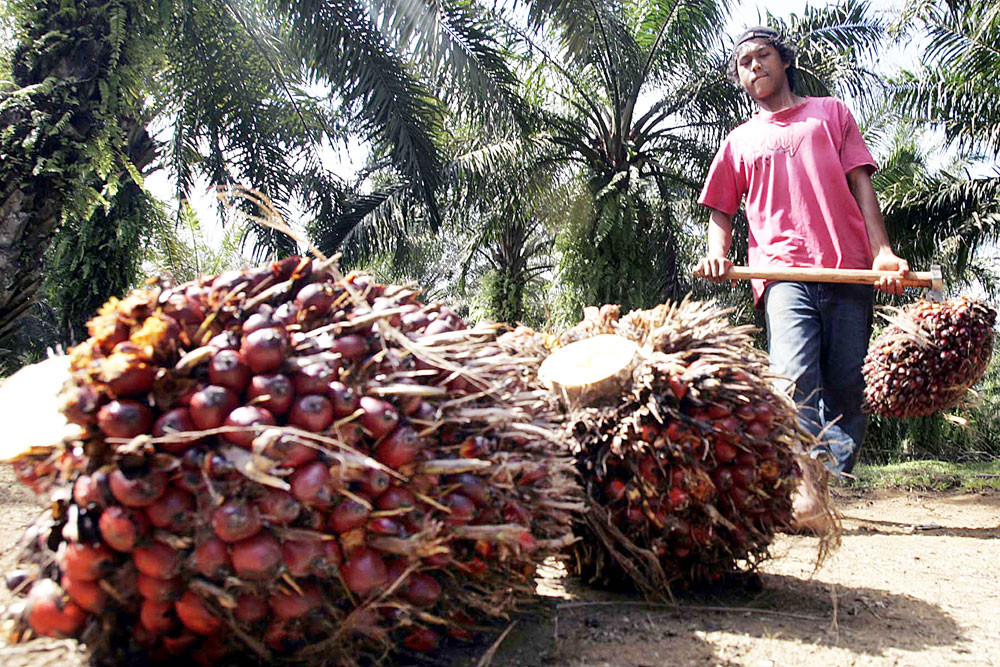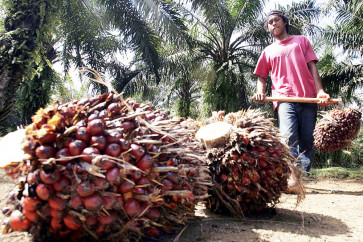WTO moves ahead with Indonesia’s complaint against EU
The move follows a number of trade actions that the EU has taken against Indonesian biodiesel, including the first iteration of RED, its illegal imposition of antidumping duties, and new countervailing duties that were introduced at the end of last year.
Change Size
 Harvest time: A worker gathers oil palm fruit bunches at a plantation in Lampung. (The Jakarta Post/R. Berto Wedhatama)
Harvest time: A worker gathers oil palm fruit bunches at a plantation in Lampung. (The Jakarta Post/R. Berto Wedhatama)
I
ndonesia’s World Trade Organization (WTO) complaint against the European Union trade barriers is moving ahead. It is a significant moment for the region’s largest agricultural export. Indonesia has successfully pushed for the WTO to form a panel in its complaint against the EU’s revised Renewable Energy Directive (RED II).
The Panel was announced Wednesday as part of a series of WTO meetings last week. The complaint was originally put forward by Indonesia in December 2019.
When a WTO member is to introduce a measure that is likely to be “trade disruptive”, they are required to inform relevant committees at the WTO. The EU did not do this when RED II was introduced. Indonesia and other palm oil producing countries expressed concern at several points throughout 2019.
After the complaint was put forward, Indonesia and the EU held a number of consultations to see if the matter could be resolved by other means. In March of this year, it became clear this would be impossible, and Indonesia requested the formation of a dispute settlement panel.
The forming of the panel last week was in many ways just a formality, but it is significant nonetheless.
RED II excludes the use of palm oil within the EU’s renewable fuel subsidy scheme. The scheme provides subsidies to fuels such as biodiesel sourced from different feedstocks. This includes biodiesel sourced from soybean, rapeseed and other vegetable oils. Palm-based biodiesel is the only vegetable oil-based fuel that has been excluded.
The EU is using the risk of “indirect use land change” (ILUC) to justify the ban. The ILUC risk methodology argues that any increased demand for palm oil grown in one place will indirectly cause deforestation in another place. The EU itself has stated that “ILUC cannot be observed or measured”. According to this logic, palm oil cannot be used in the RED scheme, regardless if it is certified as sustainable, or if the oil palm plantations were established a century ago.

















